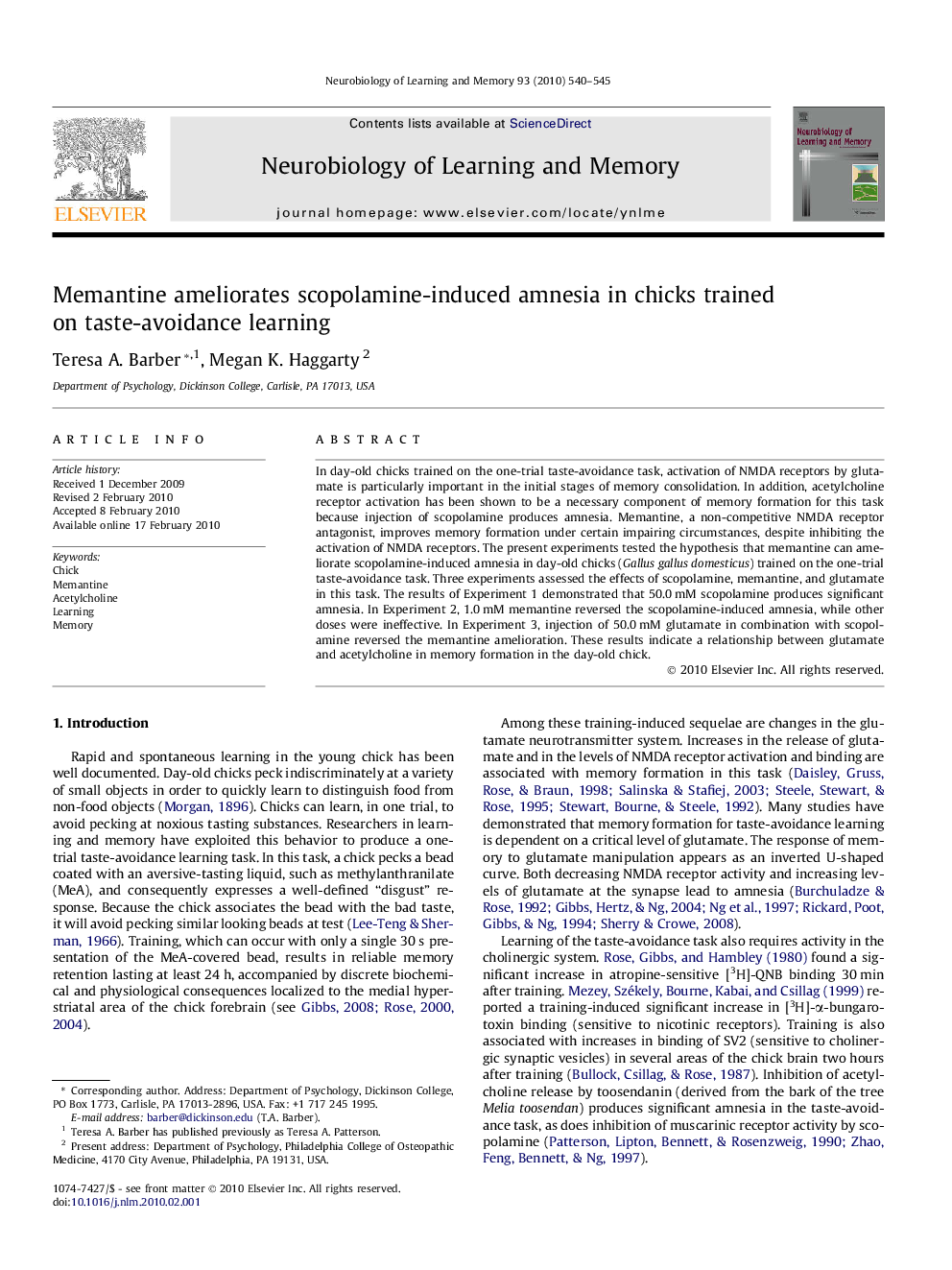| Article ID | Journal | Published Year | Pages | File Type |
|---|---|---|---|---|
| 936746 | Neurobiology of Learning and Memory | 2010 | 6 Pages |
In day-old chicks trained on the one-trial taste-avoidance task, activation of NMDA receptors by glutamate is particularly important in the initial stages of memory consolidation. In addition, acetylcholine receptor activation has been shown to be a necessary component of memory formation for this task because injection of scopolamine produces amnesia. Memantine, a non-competitive NMDA receptor antagonist, improves memory formation under certain impairing circumstances, despite inhibiting the activation of NMDA receptors. The present experiments tested the hypothesis that memantine can ameliorate scopolamine-induced amnesia in day-old chicks (Gallus gallus domesticus) trained on the one-trial taste-avoidance task. Three experiments assessed the effects of scopolamine, memantine, and glutamate in this task. The results of Experiment 1 demonstrated that 50.0 mM scopolamine produces significant amnesia. In Experiment 2, 1.0 mM memantine reversed the scopolamine-induced amnesia, while other doses were ineffective. In Experiment 3, injection of 50.0 mM glutamate in combination with scopolamine reversed the memantine amelioration. These results indicate a relationship between glutamate and acetylcholine in memory formation in the day-old chick.
